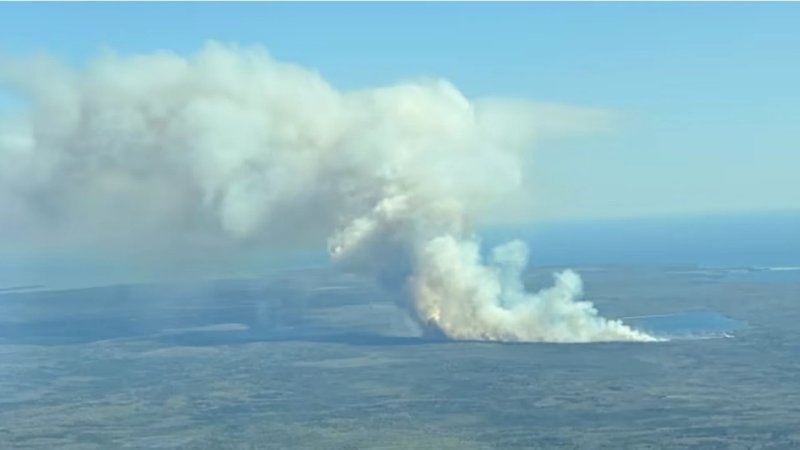Wildfires raging across Canada have scorched more than ten times the usual land, causing massive damages in multiple provinces as air quality deteriorates. The hazardous air quality, and forest fires from the east and west are forcing people to evacuate homes, and the drier months are yet to come as summer approaches.
Prof. Kent Moore, a climate scientist and a Professor in the Department of Chemical and Physical Sciences at UTM and in the Department of Physics, sheds light on the unprecedented wildfires breaking out in June, surpassing the total land burnt during an entire summer. He attributes the recent wildfires in Nova Scotia to a dry spring and the presence of downed trees left behind by tropical storm Fiona. Prof. Moore cautions that the dry season is approaching, and more wildfires are anticipated throughout the summer.
The pollutant levels recorded in Toronto and New York in the past week have ranked among the most polluted cities in the world, comparable to New Delhi.
Prof. Moore cautions, “the smoke from the wildfires is dangerous, the particulate of matter from the smoke is really small and can get deep into the lungs. Anyone with respiratory illnesses should stay indoors and avoid the outdoors. Masking is another way to protect against the particulate matter.”

The World Health Organization (WHO) has released a climate prediction report for the next five years, highlighting the dire conditions resulting from climate change. Comparing current temperatures to those around 1850, when fossil fuel usage was limited, reveals a temperature increase of approximately 1.1°C over the last 150 years. It is predicted that within the next five years, we will reach a 1.5°C increase since the pre-industrial level due to ongoing climate change. Prof. Moore adds that as one travels north, accelerated warming may reach upwards of 3°C, contributing to wildfires in northern Alberta and the southern territories. The scientific consensus identifies human activities, particularly the burning of fossil fuels and land use practices, as the primary drivers of climate change.
Prof. Moore emphasizes that the average temperature increase will have significant ramifications on the climate, leading to irreversible changes such as increased occurrences of wildfires, extreme flooding, and excessive precipitation. He warns that we have a limited window of opportunity to curb carbon emissions before reaching the catastrophic threshold of a 1.5-degree increase.
In another interview with Global News, Prof. Moore explains how the frequency of extreme events will change over time. “As the climate is changing the 100-year events (once every 100 years) are changing into 50-year or 25-year events. For example, the atmospheric river in British Columbia in 2021, caused significant flooding, washouts and landslides, causing infrastructure damage that was not designed to withstand such events.” Prof. Moore emphasizes the need for adaptation and mentions that addressing carbon emissions is crucial to mitigate the impacts of climate change. However, he also notes that expanding cities and communities are another important factor contributing to the increased risk of wildfires.
Looking ahead, as global warming persists, there is a significant possibility of reaching a 1.5-degree increase in the next year or so, leading to even warmer conditions. Unless carbon emissions are effectively controlled, wildfires will continue to intensify, resulting in more severe and frequent outbreaks.
More Information here:
Kent Moore of UTM analyzes new climate change predictions. (Global News radio)
Kent Moore of UTM comments on the Nova Scotia wildfires. (Global News radio) (Canadian Press)
Experts on wildfires & climate change: Kent Moore of UTM. (CBC radio) (CBC radio) (Weather Network online) (Yahoo!)
Kent Moore of UTM discusses extreme weather across Canada and the release of wastewater from the Fukushima nuclear disaster. (CTV) (Canadian Press) (CityNews radio) (Global radio)

